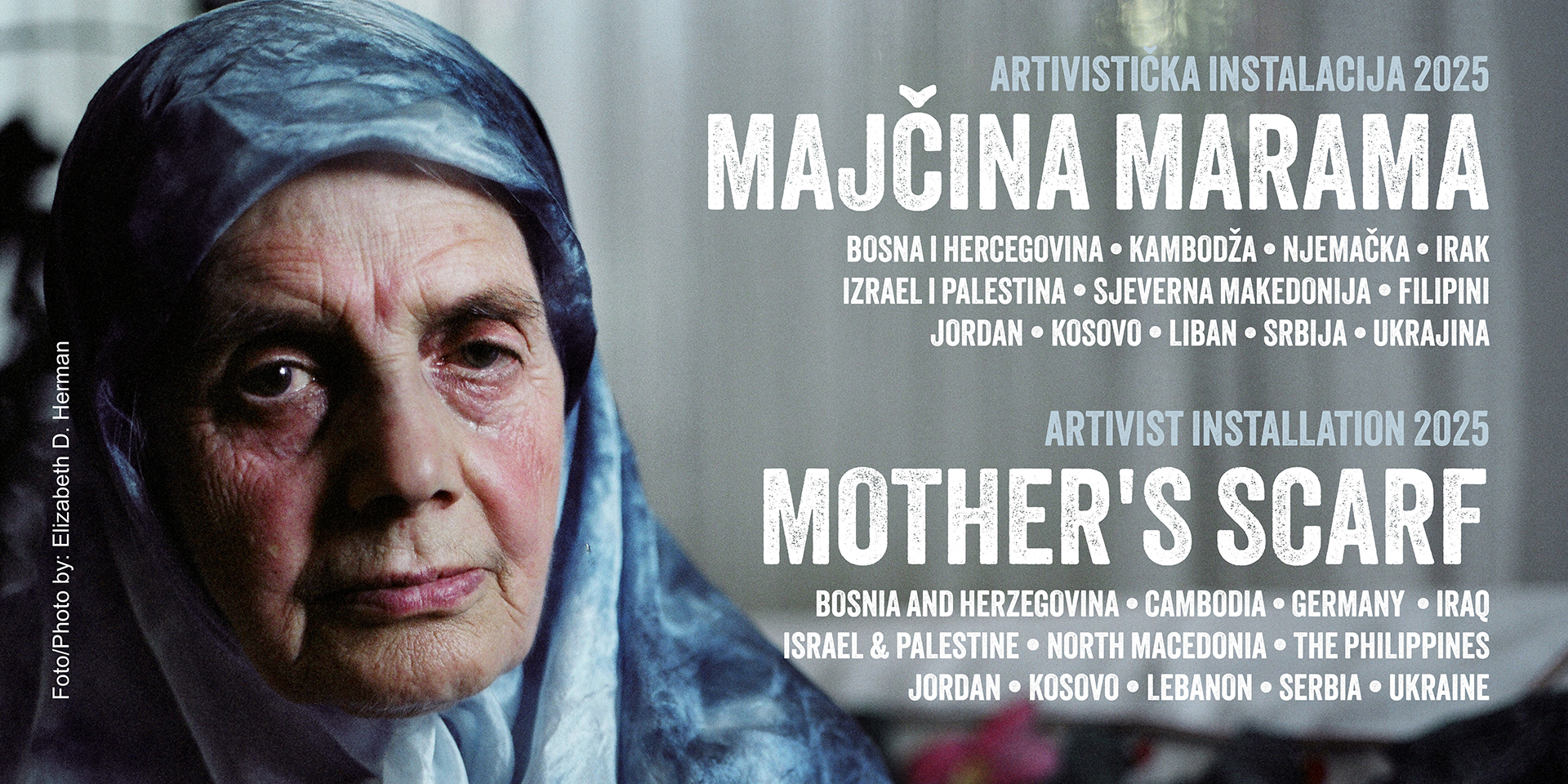
Call for a Transnational Act of Remembrance and Solidarity.
On July 11, 2025, the world marks the 30th anniversary of the genocide in Srebrenica, the most horrific act of mass violence in Europe since the Second World War. On this day, Pro Peace joins communities, civil society initiatives, partner organisations and individuals across borders in a coordinated commemorative action to honour the victims and stand in solidarity with the survivors and against genocide.
Inspired by the Mother’s Scarf campaign initiated by the Mothers of Srebrenica and Pro Peace’s partner organisation PCRC – Post-Conflict Research Centre in Bosnia and Herzegovina, the symbolic act invites people to raise scarves as a gesture of remembrance, empathy, solidarity and hope. Not only in Bosnia and Herzegovina, but worldwide scarves carry deep meaning across all communities – beyond religious and ethnic boundaries. When held up collectively, they become a quiet yet powerful symbol of mourning, resilience, and call for peace.
“In a country still divided by segregation and unhealed wounds, keeping the memory of Srebrenica alive is not only our duty, it is a daily struggle. At PCRC, we believe that innovative and creative approaches to memory work are key. Our collaboration on the ‘Mother’s Scarf’ installation is one way to honour the victims while creating space to learn, reflect, and come together across divides. Thirty years after the genocide, our commitment remains: to remember, to educate, and to break the cycles of division.” Velma Šarić from PCRC describes the importance of the Mother’s Scarf shared initiative, of the Association “Movement of Mothers of Srebrenica and Žepa enclaves” in partnership with the Post-Conflict Research Center (PCRC) and the Srebrenica Memorial Center.
The joint action will take place simultaneously in multiple countries from Bosnia and Hercegovina, Germany, Kosovo, North Macedonian, Serbia, Jordan, Iraq and many more, demonstrating a shared call for justice and a commitment to never forget. Pro Peace encourages broad participation and will collect images and videos from these moments to share to share them with people worldwide and send a powerful message of remembrance and solidarity. The organisation also supports collecting scarves to donate them to the collection of the Mothers of Srebrenica growing to reach 8732 – the number of the Srebrenica genocide victims.
“Thirty years after the Srebrenica genocide, we remember with this collective event the wounds left by violence and the strength of those working for peace and justice in the Western Balkans. As nationalism and war rise again, from Ukraine to the Middle East, the message is clear: peace is fragile, and silence is dangerous. Building peace starts with empathy, remembrance and the courage to resist hate everywhere.“ Alexander Mauz, Chair of the Pro Peace Executive Board, emphasizes.
Join Pro Peace on 11 July to take part in a collective act of remembrance marking 30 years since Srebrenica and standing in solidarity with all those affected by genocide.





